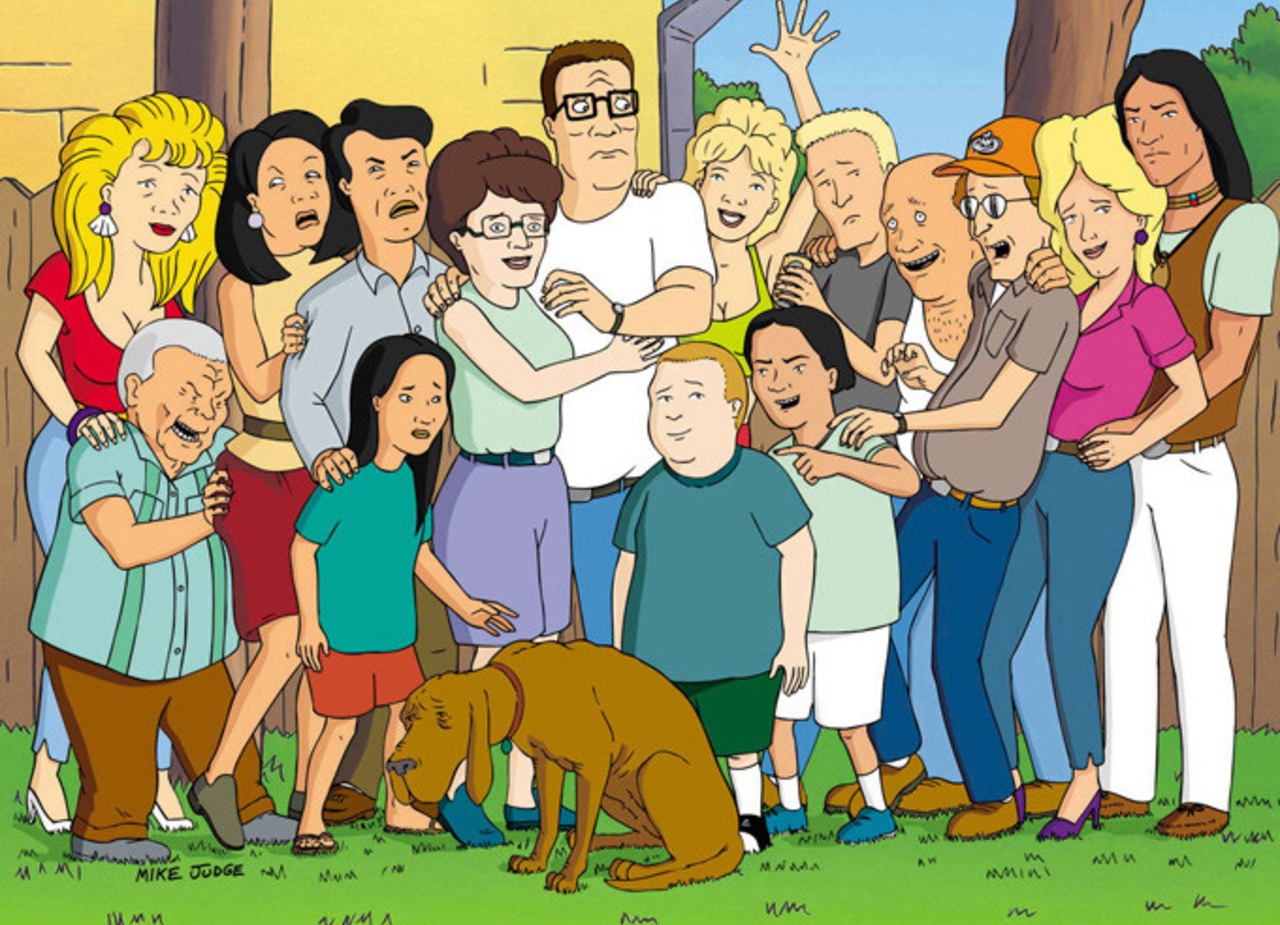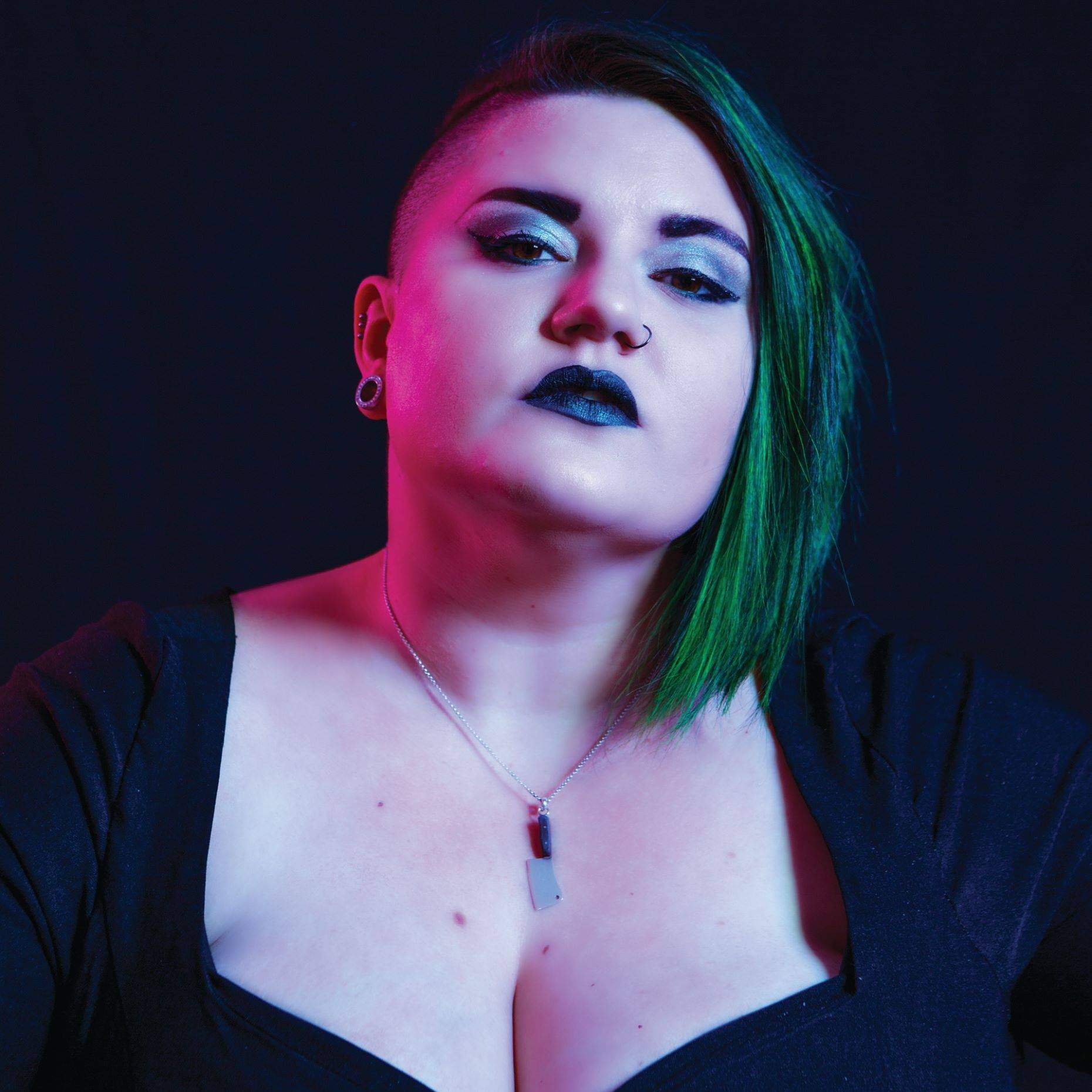How King of the Hill has remained relevant years later
King of the Hill has been easily dismissed as a low-brow “comedy about rednecks,” but the truth is that the series is a biting commentary on...everything.

The latest updates, reviews and unmissable series to watch and more!
You are now subscribed
Your newsletter sign-up was successful
Want to add more newsletters?

ONCE A WEEK
What to Watch
Get all the latest TV news and movie reviews, streaming recommendations and exclusive interviews sent directly to your inbox each week in a newsletter put together by our experts just for you.

ONCE A WEEK
What to Watch Soapbox
Sign up to our new soap newsletter to get all the latest news, spoilers and gossip from the biggest US soaps sent straight to your inbox… so you never miss a moment of the drama!
King of the Hill may have wrapped up over a decade ago after thirteen groundbreaking seasons, but in the wake of the Trump presidency, the show is as relevant as ever. From the brilliant minds of Mike Judge (Beavis & Butthead, Silicon Valley, Office Space) and Greg Daniels (The Office, Parks & Recreation), King of the Hill is a satirical animated series centered on the eponymous Hill family. Patriarch Hank Hill lives a humble life as a propane salesman with his award-winning substitute teacher wife Peggy (although she holds a multitude of other jobs throughout this series) while raising his proudly plump and effeminate son Bobby and overseeing his blissfully ignorant niece Luanne in the fictional town of Arlen, Texas.
The series has been easily dismissed as a low-brow “comedy about rednecks,” but the truth is that King of the Hill is a biting commentary on everything from generational differences, the constant shift of American class dynamics, post-Reagan conservatism, idealized leftism, blind patriotism, systemic oppression and was ripping apart stereotypes before it became a buzzword. While the show is far more heavily rooted in slice-of-life realism compared to its contemporaries like The Simpsons or Family Guy, it consistently took larger swings at pushing the envelope with its storytelling and has continued to stand the test of time.
But at the heart of King of the Hill is the constant war being fought by Hank —between his idealized view of American values and the reality that true happiness and fulfillment will only be achieved if he’s willing to accept that the world is not what he had been led to believe. He’s surrounded by friends and neighbors similarly struggling with their own ideas of what makes “The American Dream,” many of whom appear to be permanently stuck in their ways and beyond help.
Even in the earliest seasons when King of the Hill is arguably at its least nuanced, the show is unafraid to show the shortcomings of the major players. When we are first introduced to the Laotian Souphanousinphone family, the Hill family lights up their ignorance with neon lights by continually asking if they’re “Chinese or Japanese.” The joke is not at the expense of the Laotian family, but instead, as Minh Souphanousinphone frequently said, “her hillbilly neighbors.”
Hank, despite his feigned confidence and perceived stubbornness, is constantly challenging his own preconceived notions and this old bloodhound is able to learn new tricks — no matter how hard he insists that he’s already learned plenty. Hank is the father we can educate about racial injustice and systemic issues who may not fully understand the hip new jargon used to describe it, but sure as hell doesn’t think it’s right that people are being treated differently because of the color of their skin.
Few characters are more unlikable than Dale “Rusty Shackleford” Gribble. Part-time bug killer and full-time wingnut, he genuinely believes the United Nations controls the weather, Hawaii doesn’t exist, and all computers are sentient. Everything that leaves his mouth sounds like a new QAnon conspiracy theory, but what was a funny character twenty years ago is now a more likely reality. Times were simpler when the most ominous conspiracies we had to deal with was Dale suggesting that the Super Bowl was pre-taped at the same studio as the moon landing.
Perhaps most relevant is King of the Hill’s progressive examinations of gender politics, with none more prominent than through the exploration of Hank's son, Bobby Hill. The pinnacle of healthy masculinity, Bobby is the source of most of Hank’s realizations that he needs to change with the times. Bobby sees no issue with learning how to defend himself by taking a women’s self-defense class and kicking bullies in the testicles. He puts housewives to shame with the skills he learns in home economics, willingly lets his girlfriend win him pink teddy bears, dreams of becoming a prop comic, has a passion for dog dancing, never passes up a chance to wear costumes (especially if they come with a cape) and experiments with gender presentation with ease. On the flip side, the high-femme, ditzy, and boy crazy Luanne desperately tries to adhere to traditional feminine roles but is a dynamite softball player, an iron jaw boxer and a whiz of a mechanic.
The latest updates, reviews and unmissable series to watch and more!
While adding gender to any of the aforementioned activities is archaic, pretending that we don’t still live in a world where gender expectations are unfortunately a thing would be inaccurate. So much so that Hank’s catchphrase, “that boy ain’t right,” is usually reserved for Bobby’s refusal to participate in traditional masculinity. Regardless of how delicately or impulsive Hank responds, King of the Hill never endorses Hank’s opinions on Bobby’s interests, merely highlighting the not-always-easy journey of a father learning to understand his son.
King of the Hill’s contemporaries frequently made weight and fat characters nothing more than punchlines, but the series villainized those who body shame and celebrated those who react with kindness. When it’s revealed that Peggy has size 16 ½ shoes and faces both shaming and fetishiziation for their size, Bobby tries to comfort her by stating: “Mom, I’m fat, but big deal. I don’t feel bad about it. You never made me feel bad about it, and just because there are some people in the world who want me to feel bad about it, doesn’t mean I have to.” Bobby has better body positivity than an instagram hashtag and exists as a constant source of empathy — even when pre-teen/teenage angst gets the better of him.
It’s a shame that King of the Hill went off the air before the world became what it has become, considering the series also existed like a Trojan horse into a specific type of social circle. Blue-jean wearing, alley beer drinking, good ol’ boys saw themselves represented in Hank Hill, and tuned in to watch a show they felt understood them. They identified with a desire to “kick ass” when people crossed them and respected a show that could respect a properly grilled medium rare steak. Instead of something that encouraged their anti-progressive mentalities, they were instead delivered a show satirizing every angle of American life and showing that it is possible to grow beyond the archetype into what makes a “real” man. It just took a fictional character to do it.
“Yep” — Hank Hill
BJ Colangelo is an award winning filmmaker and film analyst specializing in dismissed cinema and television. She writes about horror, wrestling, musicals, adult animation, sex and gender, kicking pancreatic cancer’s ass, and being a fat queer in places like Fangoria, Vulture, The Daily Dot, Autostraddle, Playboy.com, and a handful of books college students get assigned to read. She’s also the co-host of the teen girl movie podcast, This Ends at Prom, with her wife, Harmony.


